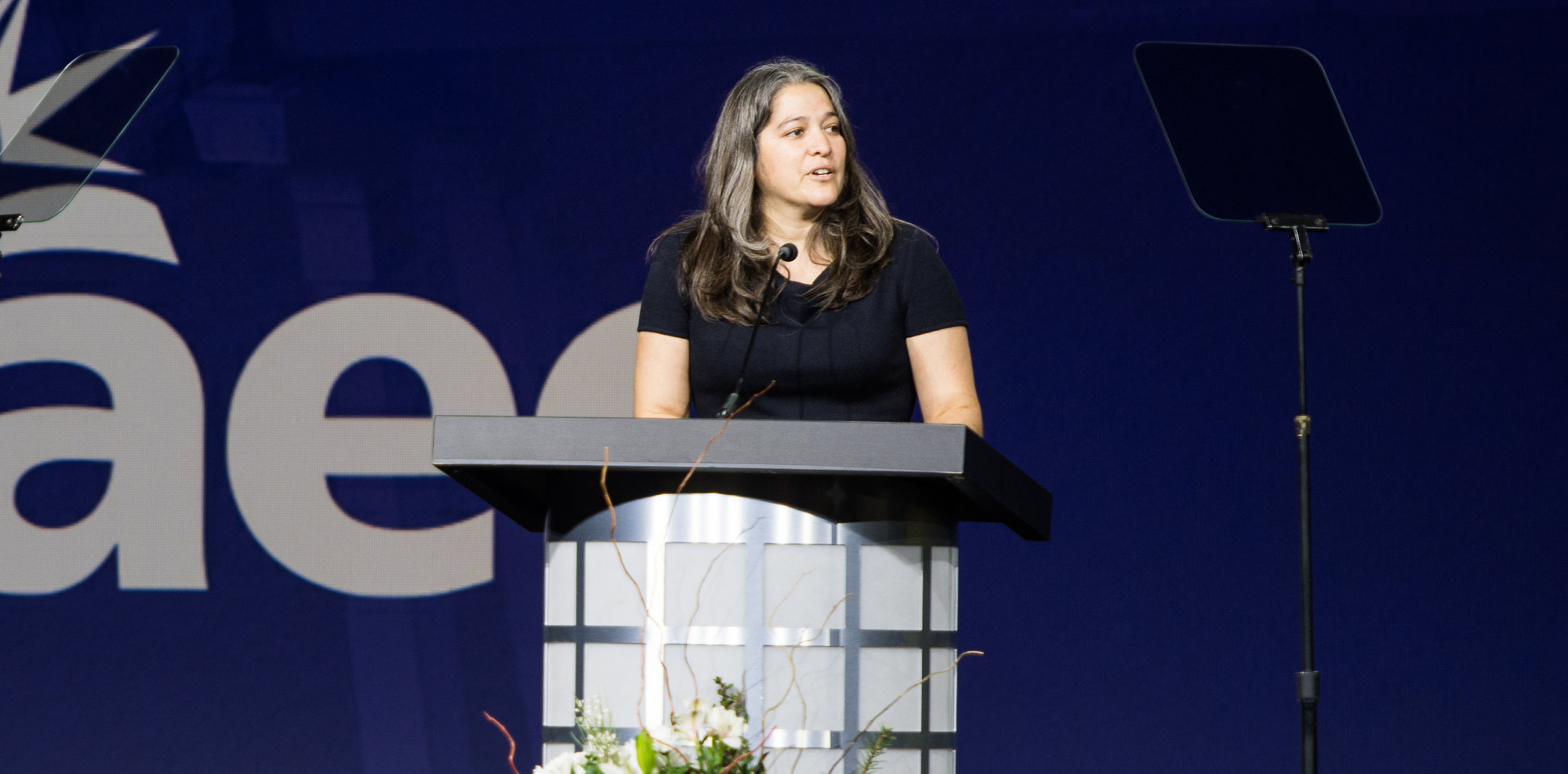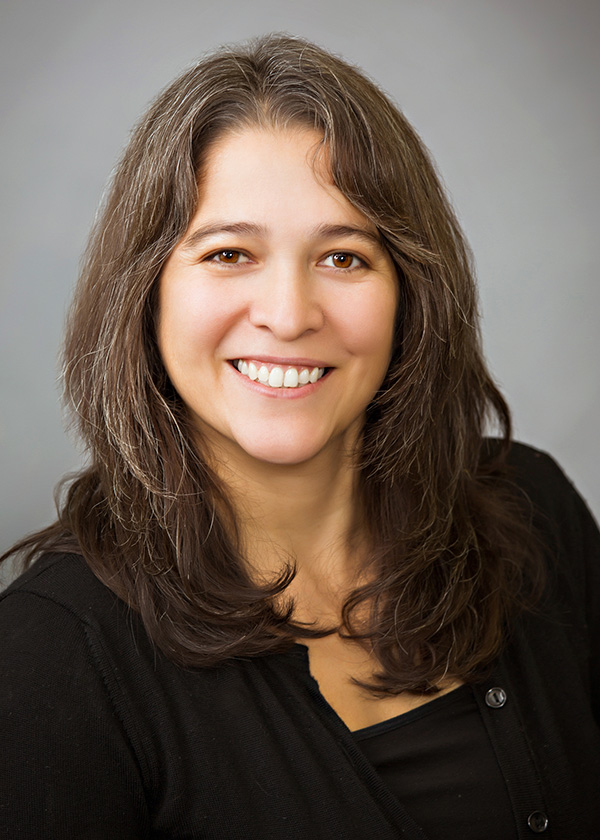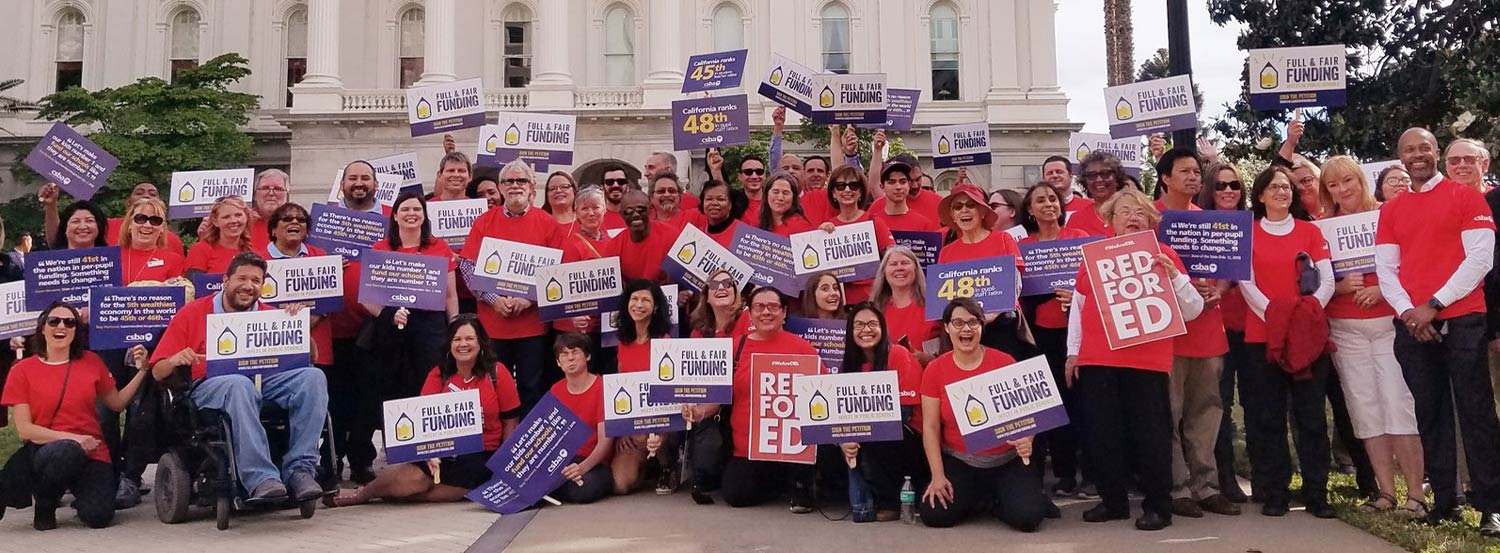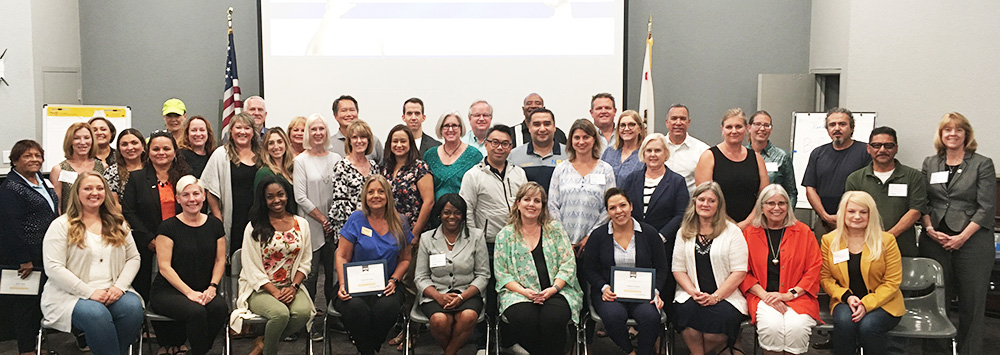

A native Californian, fifth-generation Azusa resident and daughter of a Mexican immigrant, Cruz-Gonzalez brings nearly two decades of education leadership experience to her new position. She has dedicated her career to improving outcomes for all students, with a focus on increased support for English learners. Now in her 18th year as a school board trustee, Cruz-Gonzalez has been an active member of CSBA, most recently holding the office of President-elect and previously serving on the CSBA Board of Directors by representing the greater San Gabriel Valley. As an advocate for the state’s public education system and a committed lifelong learner, Cruz-Gonzalez has also served on CSBA’s Legislative Committee and the Council of Presidents. She completed CSBA’s Masters in Governance training program in May 2015.



Senior Director of Communications:
Troy Flint | tflint@csba.org
Managing Editor:
Kimberly Sellery | ksellery@csba.org
Marketing Director:
Serina Pruitt | spruitt@csba.org
Staff Writers and Contributors:
Andrew Cummins | acummins@csba.org
Alisha Kirby | akirby@csba.org
Aaron Davis | adavis@csba.org
Barbara Laifman | blaifman@csba.org
Mike Ambrose | mambrose@csba.org
Graphic Design Manager:
Kerry Macklin | kmacklin@csba.org
Senior Graphic Designer:
Mauricio Miranda | mmiranda@csba.org
Xilonin Cruz-Gonzalez | Azusa USD
President-elect:
Suzanne Kitchens | Pleasant Valley SD
Vice President:
Susan Heredia | Natomas USD
Immediate Past President:
Emma Turner | La Mesa-Spring Valley SD
CEO & Executive Director:
Vernon M. Billy
California School News (ISSN 1091-1715) is published 11 times per year by the California School Boards Association, Inc., 3251 Beacon Blvd., West Sacramento, CA 95691. 916-371-4691. $4 of CSBA annual membership dues is for the subscription to California School News. The subscription rate for each CSBA nonmember is $35. Periodicals postage paid at West Sacramento, CA and at additional mailing office. POSTMASTER: Send address changes to California School News, 3251 Beacon Blvd., West Sacramento, CA 95691.
News and feature items submitted for publication are edited for style and space as necessary.


January is School Board Recognition Month, a time to appreciate district and county office trustees and the special obligation we have as stewards of America’s greatest public trust — its public school system. As we reflect on our unique role, we would do well to remember what hangs in the balance. More than six million California students are counting on us to provide each and every one of them with a high-quality education.
This may seem like a daunting task at a time when an education funding crisis forces us to do more with less. Those constraints, however, don’t excuse us from our duty to use good governance and sound policy to facilitate student success. As CSBA’s mission statement notes, “strong local boards of education are essential to ensure a high-quality education for every student in every community.”
Currently, our willingness and capacity to uphold this responsibility are under question in some quarters. We should take this as a challenge to reaffirm our commitment to all students, to embrace reasonable transparency measures and to prove we are good stewards of public monies who can be entrusted with Full and Fair FundingSM.
Gov. Gavin Newsom’s second budget proposal — a $222.2 billion spending package released on Jan. 10 that also solidifies $21 billion in total statewide reserves — makes bold investments in addressing key statewide issues such as climate change, health care costs and the homelessness crisis. While not fundamentally addressing California’s education funding crisis, the budget adds $3.4 billion in new revenue to public schools and substantially focuses on special education, teacher preparation and early education.
Overall, the proposed Proposition 98 guarantee for K-14 education is $84 billion, an increase of $2.9 billion over the enacted 2019–20 guarantee. A $1.2 billion Local Control Funding Formula investment reflects a cost-of-living adjustment of 2.29 percent. That number is markedly lower than the enacted 2019–20 COLA of 3.26 percent but higher than the statutory 1.79 percent COLA forecast by the Legislative Analyst in November.

Citizen oversight of local government is the cornerstone of democracy in the United States. School board members are the epitome of this tenet in their roles as locally elected public officials entrusted with governing public schools in their communities.
![]() GovernanceCorner Practical tips from our MIG faculty
GovernanceCorner Practical tips from our MIG faculty
As governing boards continue to recognize the correlation between safe school environments and higher student achievement, the board plays a critical role in providing safe environments for students. Emphasis on a positive school climate, including school safety, through the adoption of board policies helps enable students to learn, grow and thrive.
Board members can take action to enhance school climate by regularly discussing school safety in meetings and asking these questions:
- What does research show about the relationship between school safety and student achievement?
- How does school safety integrate with the emotional health and well-being of our students and their ability to learn?
- What statements related to school safety are included in our district’s/county office of education’s visions and goals?
- What does our data tell us about how students, teachers and staff experience safety in our schools?

Front Row: Left to Right
Megan Epperson, Rebecca McRae, Charda Fontenot, La Mesa-Spring Valley SD; Cheryl Quinones, South Bay Union SD; Ammie Hines, Christina Bentz, Adelanto ESD; Katalina Penland, El Centro ESD; Lola Skelton, Melanie Dohn, Lori Slaven, Hughes-Elizabeth Lakes Union SD
The streamlined new Local Control and Accountability Plan template should be easier both for local educational agencies to complete and use and for stakeholders to understand, California Department of Education and State Board of Education officials said upon the adoption of the new document at the Jan. 8–9 board meeting in Sacramento.
The year-in-the-making document is the fourth template revision in six years and will be in use for the 2020–21 through 2022–23 LCAP cycles. Most of the changes stem from Assembly Bill 1840, which called for the LCAP to “make the information included more accessible for parents and other local stakeholders” while providing technical instructions for LEAs in a separate section. An introduction of expenditure tables should also reduce the length of most LCAPs by about half, CDE staff said.
The 2019 AEC closed out with an insider’s look at the politics central to California public schools. The Third General Session, moderated by CSBA CEO & Executive Director Vernon M. Billy, featured media influencers with unique perspectives on how the politics and policy of education issues unfold.
On stage with Billy were longtime Capitol affairs journalist Dan Walters of CalMatters, Politico state education reporter Mackenzie Mays, local education journalist Kristen Taketa of the San Diego Union-Tribune and Capitol Advisors Group President Kevin Gordon.
As Owen withdrew further into himself, the family noticed the only thing that captured his attention were animated Disney movies. After years of therapy and minimal progress, Owen began communicating again by relating happenings in his own world to similar situations in Disney movies. “He’s using them to decode the world!” Suskind said on stage at AEC.
As the First General Session speaker at CSBA’s 2019 AEC, Dr. Kaku made several bold predictions about what the future of the workforce will look like, and how classrooms and teachers will shape the ways in which students learn.
His advice to governance teams was simple: don’t be afraid to embrace change.


Research has long shown that low-income youth, English learners and students of color stand to benefit most from high-quality summer education programs. Summer learning programs not only support students who need extra time to catch up and master skills they’ll need in the upcoming school year, but can also provide a safe place where students can access healthy meals and a chance to more deeply explore their interests in topics such as science, technology or the arts.
The new year presents a good opportunity for governing boards to reflect on recent achievements as well as unfinished work that districts and county offices of education have ahead of them to ensure that all students have access to an education that prepares them for college, career and life success. To support board members in this journey, CSBA has produced a new governance brief, “Educational Equity: The Need for Boards to Support Equity-Based Decisions.”
The brief, authored by CSBA Equity Network consultant Nicole Anderson, focuses on the urgent need for equity in both the state’s and nation’s education systems and the important role that board members have in addressing persistent opportunity gaps. Governance teams can also use the resource to support actions that can remove persistent barriers to opportunity. The brief, available at bit.ly/2EvObwn, also offers additional key questions for board members to ask, along with recommendations for next steps, such as developing an equity definition.
Boards may establish one or more student board member position(s) at their own discretion, reflecting the board’s desire for student participation in governance of the district. Alternatively, students can petition the board requesting the appointment of at least one student board member. When student board representation is established by petition, California law requires that student board members be chosen by students enrolled in district high schools. A same or similar process may be used for positions established at the board’s discretion. Student board members serve a one-year term, commencing July 1.
Welcome to 2020! I am honored to be the President of the California County Boards of Education for 2020. I would first like to thank 2019 President Dana Dean for her leadership and guidance this past year and making sure that CCBE and CSBA voices were heard in Sacramento. Also, everyone on the Executive Board and Board of Directors, through your hard work, we have set high standards and goals for this coming year.
This year, I look forward to working with the CCBE leadership team and all of you as we continue to strengthen our partnership with CSBA and elected officials in Sacramento. We will continue to be the voice of the 6.2 million students that we all serve.
Institute for New and First-Term Board Members
Board Presidents Workshop
Masters in Governance Courses 1 & 2
The Brown Act
Institute for New and First-Term Board Members
Local Control and Accountability Plan (LCAP) Training
Masters in Governance Courses 3 & 4
Masters in Governance Courses 3 & 4







